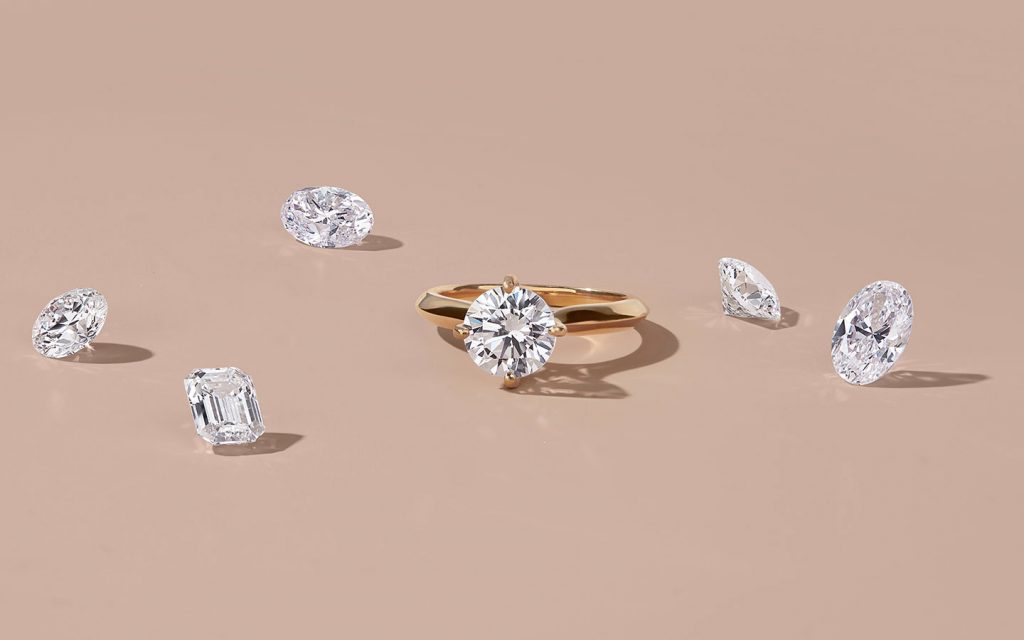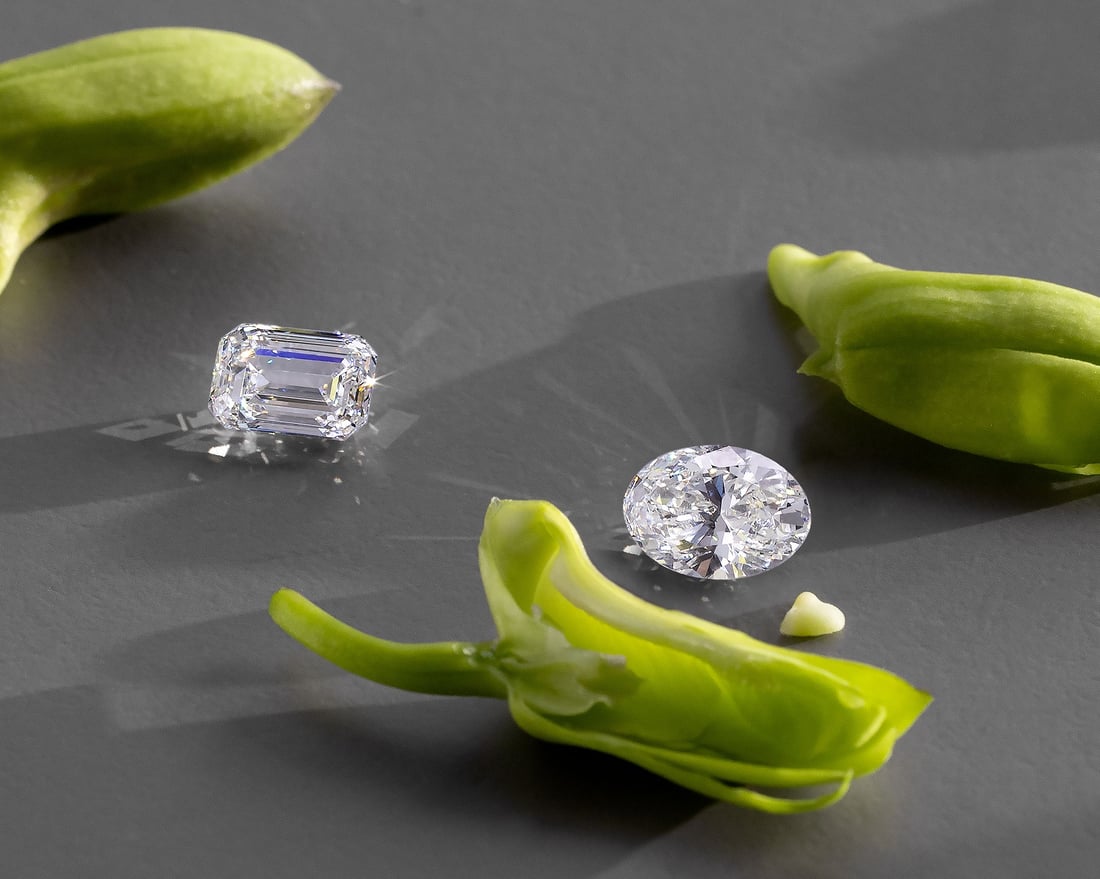Lab-grown diamonds have gained significant attention in recent years as an ethical and sustainable alternative to natural diamonds. Two of the most recognized gemological laboratories that certify lab-grown diamonds are the Gemological Institute of America (GIA) and the International Gemological Institute (IGI). Both GIA and IGI provide certificates for diamonds, but their standards and grading criteria differ. In this article, we will explore the key differences between GIA vs IGI when it comes to lab-grown diamonds and discuss how these certifications impact consumers.
Table of Contents
ToggleUnderstanding Lab-Grown Diamonds
Lab-grown diamonds, also known as synthetic diamonds, are created in a controlled environment using technology that mimics the natural process of diamond formation. These diamonds are chemically, physically, and optically identical to their natural counterparts. The rise of lab-grown diamonds is partly due to their environmental benefits and ethical production processes. As the demand for lab-grown diamonds increases, understanding the role of certification becomes crucial for consumers. Both GIA and IGI offer diamond certifications, but how do they compare when it comes to lab-grown diamonds?
The Role of GIA in Certifying Lab-Grown Diamonds
The GIA is one of the most reputable gemological laboratories worldwide, known for its rigorous diamond grading system. When it comes to lab-grown diamonds, the GIA is particularly respected for its transparency and accuracy. Unlike IGI, which certifies both natural and lab-grown diamonds, the GIA provides separate grading reports for lab-grown diamonds. This distinction helps to avoid any confusion between lab-grown and natural diamonds.
The GIA’s grading report for lab-grown diamonds includes key details such as cut, color, clarity, and carat weight, similar to what is found in a natural diamond certification. The GIA also notes whether the diamond is lab-grown, providing clear information about its origin. This transparency ensures that consumers understand the nature of their purchase. GIA’s expertise in grading and its long-standing reputation make it a top choice for those seeking trustworthy certification for lab-grown diamonds.
The IGI’s Approach to Lab-Grown Diamond Certification
The IGI, another leading gemological laboratory, is known for its broad certification services. While GIA vs IGI might differ in grading criteria and practices, the IGI also certifies lab-grown diamonds with a focus on comprehensive and reliable assessments. Like the GIA, the IGI evaluates diamonds based on cut, color, clarity, and carat weight. However, the IGI’s grading scale can sometimes be perceived as more lenient, especially when comparing the final grades of lab-grown diamonds.
One advantage of IGI certifications is that they often include detailed visual diagrams of the diamond’s cut, providing more insights into the shape and symmetry of the diamond. For those who prioritize visual appeal, IGI reports can be highly informative. Additionally, IGI tends to have a faster processing time compared to the GIA, which may be appealing to those looking for a quicker certification process.
GIA vs IGI: Key Differences in Grading Criteria
While both GIA and IGI are respected names in the diamond industry, the differences in their grading criteria can impact how a lab-grown diamond is assessed. For instance, GIA tends to be stricter in its grading process, particularly with regard to the clarity and color of lab-grown diamonds. As a result, GIA-certified diamonds may sometimes receive lower grades in comparison to IGI-certified diamonds, even if they are of similar quality.
Another notable difference between GIA vs IGI is the use of laser inscriptions. The GIA is known for inscribing a unique serial number on the girdle of each lab-grown diamond it certifies. This inscription ensures the diamond’s authenticity and traceability, making it easier for consumers to verify the certification. On the other hand, IGI’s laser inscriptions are not as consistently applied, which might cause concerns for those seeking an added layer of assurance.
How Certification Affects the Value of Lab-Grown Diamonds
When it comes to purchasing a lab grown diamonds, the certification body plays a crucial role in determining the diamond’s perceived value. GIA vs IGI can influence the resale value of a lab-grown diamond. Generally, diamonds certified by GIA tend to be valued higher in the market due to the lab’s rigorous standards and global reputation. This can be an important factor for consumers who plan to resell their lab-grown diamonds in the future.
In contrast, IGI-certified diamonds may be priced lower, though they can still represent a solid investment for those who prioritize appearance and overall quality. Ultimately, the value of a lab-grown diamond is influenced not only by its certification but also by the diamond’s cut, color, clarity, and carat weight. Understanding the certification process of both GIA and IGI can help consumers make informed decisions when purchasing lab-grown diamonds.
Conclusion: Which Certification Is Right for You?
In the debate of GIA vs IGI, there is no clear-cut winner. Both certification bodies have their strengths, and the choice between the two largely depends on what the consumer values most. If transparency, accuracy, and a global reputation are priorities, then a GIA-certified lab-grown diamond might be the best option. On the other hand, if you are looking for a faster certification process and a more visual representation of your diamond, an IGI certificate could be the right choice.
Ultimately, whether you choose a GIA or IGI-certified lab-grown diamond, you can rest assured knowing that both organizations offer reliable assessments. It is essential to consider all factors, such as the diamond’s grading, certification, and your personal preferences, when making a purchase. As lab-grown diamonds continue to gain popularity, understanding the differences between GIA vs IGI will help you make an informed choice for your next diamond purchase.




